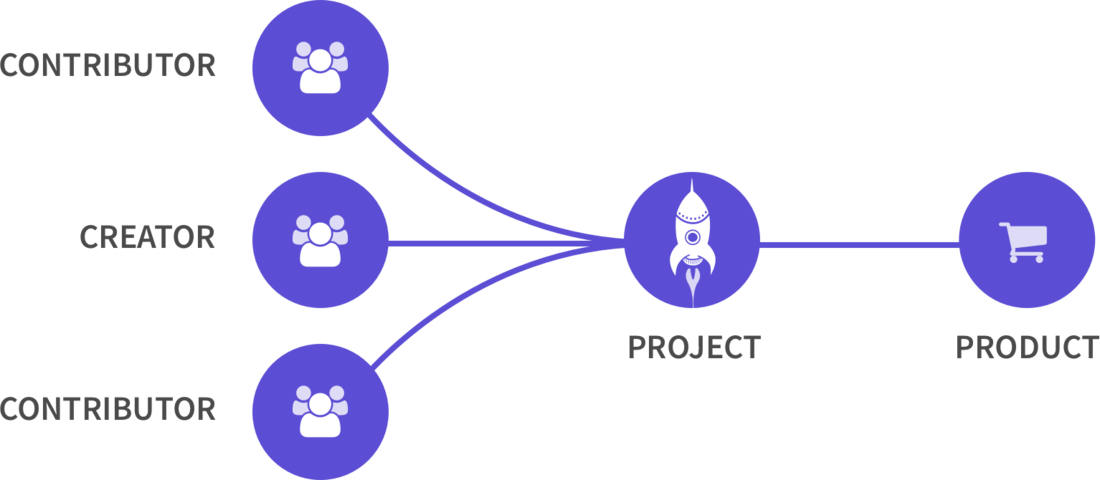50 minutes ago, Wyrframe said:
I'm not as concerned with the fact these features aren't implemented yet, as I am with the fact you have laid out no outline, roadmap, or plan for how they will work.[...] your own business model (how does the system support itself, and how does it reward its own maintainers) is completely undiscussed.
First off, thanks for the reply. It means a great deal and I'm relieved to see you've come up with genuine and specific criticisms that I can actually address and remedy. I can see how the above is a real problem and it was largely, originally because I honestly didn't know the specifics myself - but now that I do know, it's ridiculous for me to hope/assume people will commit to the platform without this information. For the record, I'm currently aiming to take 15-20% (inc. all costs) of sales that occur through the platform and 5% of payments into the platform from external sources (again, inc. all costs.).
Quote
Your messaging is pulling me in two directions at once.
- "Free, no cost, produce a product using manpower alone" screams "no barriers to starting a project and getting people to put their own time and money into it, instead of you".
- "Less competition to deal with" is an impossible promise (that's not how markets work), but you still make it as though it's a given.
- Meanwhile, some of your other messaging and your comments here are trying to make us think it's about making project controllers accountable to their contributors (whether fiscal or material), and yet also about open source ideals (contribution is its own reward).
As for these, it's incredibly astute of you to pick up on this and again the confusion caused by all these messages is an oversight on my part.
The first bullet point regarding getting people to put their own time and money in instead of you is one that's present in all open source and crowdsourced and even crowdfunded projects. The solution has always been to offer something back to the public in return for this. With this model, what's given back is a pseudo equity/proportionate share of the profits in a business, which is a lot more than all other models out there. As for barriers to entry, I believe it creates a meritocratic process for creating new products. You as a contributor are essentially an investor (of time. I want to emphasise that it's not an investment of money as you suggested) and if you don't think a project is good enough, as an expert in the field, you move on. In an ideal world that's the perfect barrier to entry, not personal wealth, not network & connections, but the quality and execution of an idea. Having experienced individuals appraise an idea is substantially better than going to a VC with a wealth of cash, cash that you convince them to give to you after showing graphs of exponential growth, complete market capitalisation and zero cash flows. Of course, in some cases, this can work for a project, but as a way of building meaningful and sustainable businesses in the tech/software sector, I'm yet to see this work out as well.
The idea behind "Less competition to deal with" is all about not having to compete directly with the big players in a market, and this I do believe (again) to be true, though I concur that it's not applicable in all situations (e.g. iOS apps where you're forced to deal with the App Store). I'm not implying that Crowdsourcer.io is going to reduce market saturation - not by a long shot - and I can see how I need to put forward this point markedly better. A quick example of the kind of marketplace that achieves this beautifully is Itch.io, though it's not without its own problems.
"Meanwhile, some of your other messaging and your comments here are trying to make us think it's about making project controllers accountable to their contributors (whether fiscal or material), and yet also about open source ideals (contribution is its own reward)." - Again this is a problem with how I'm pitching the idea and it's something I need to resolve if it's causing confusion. The platform does both these things. It champions venture creation by technicals rather than idea/money people and does so in such a way that 'project controllers' (as you put it) can't just sit back and reap the rewards (well they could but they wouldn't get much profit from it). Similarly, contributors are contributing their time having appraised a project - perhaps initially to increase their skills or as a hobby - with the hope that the project becomes financially profitable at which point they earn a fair and equitable share of the profits. The balance between controllers and contributors is kept in check by voting rights, project management rights and other mechanics that contributors have access to as they progress. No one individual or group of individuals should have an overruling power and the projects themselves, ideally, should be autonomous. Again, I'm not saying we're there yet, but that's the end goal: a mutually beneficial way of collaborating together for the financial benefit of all in the project.
I've saved many of your quotes in my development boards and I'll work to ensure that all that you've said is factored into clearer and more digestible information. Since starting this venture I've become to believe that one of the hardest parts is explaining ideas succinctly - and this conversation is proving it!
Thanks once again for the time you've put into crafting these responses, it's appreciated a lot.
Mike










